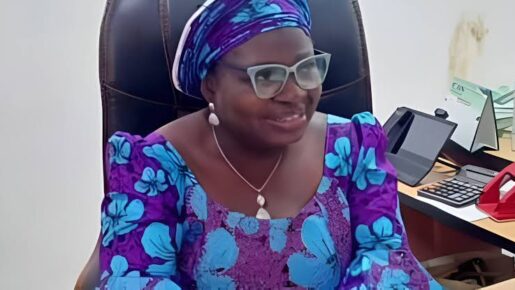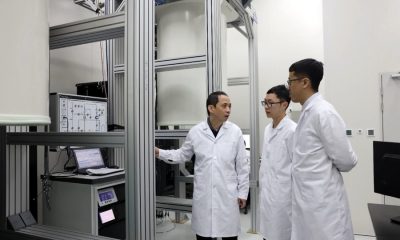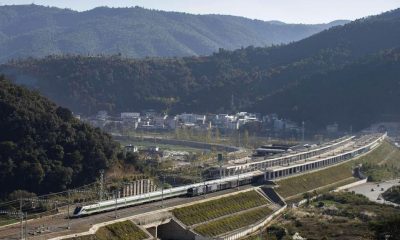Business
Civil Servants Demand Accountability on Wage and Pension Issues

The Association of Senior Civil Servants of Nigeria (ASCSN) has voiced frustration over the government’s failure to address critical economic challenges faced by workers, particularly concerning the minimum wage and pension reforms. Speaking at the ASCSN’s End of Year Celebration in Lagos on Wednesday, National President Shehu Muhammed emphasized the need for a comprehensive approach to workers’ welfare, especially in the face of rising inflation and economic hardships.
“Inflation has made the previously proposed N250,000 living wage outdated,” Muhammed said, criticizing the discrepancy between minimum wage figures claimed by governors and the actual impact on workers. He described the reported N70,000 to N80,000 minimum wages as political claims that rarely lead to substantial improvements for workers.
Muhammed also took issue with the federal government’s handling of the fuel subsidy removal, arguing that it worsened the financial strain on Nigerians. “Removing subsidies without functional refineries to ensure local fuel production has deepened the economic crisis,” he said, highlighting that workers are bearing the brunt of this poorly executed policy.
On pensions, Muhammed criticized the contributory pension scheme for failing to meet its promises, citing the non-remittance of employer contributions and the resultant hardship for retirees. He called for legislative amendments to ensure accountability and facilitate workers’ access to their retirement benefits.
Further concerns were raised about the inadequacy of public servants’ allowances, including transportation and travel allocations, which have not been updated to reflect current economic realities. “These rates, set over a decade ago, are no longer realistic,” Muhammed stated.
The union also connected the issues of unemployment and rising insecurity to the government’s failure to create sustainable job opportunities, stressing that many young people, without job prospects, are being driven into criminal activities. Muhammed urged the government to implement policies supporting job creation and small businesses.
He concluded by pledging that the union would push for better accountability in future negotiations and release a detailed report on states that have failed to implement the current minimum wage. “Workers deserve more than political promises; they deserve action,” he affirmed.
Business
CBN expresses commitment to FX Code

The Central Bank of Nigeria (CBN) has reaffirmed its commitment to the Nigerian Foreign Exchange (FX) Code, stating that its operations align with the principles of the code.
In a statement signed by Governor Olayemi Cardoso, Deputy Governor of Economic Policy Mohammad Abdullahi, and Director of the Financial Markets Department Dr. Omolara Duke, the apex bank emphasized that its decision follows a review of the FX Global Code and recognition that the code represents a set of principles widely acknowledged as good practice in the foreign exchange market.
The statement confirmed that the CBN acts as a regulator to market participants as defined by the code and is committed to overseeing FX market activities in a manner consistent with its principles.
“To this end, the Bank has taken appropriate steps, based on the size and complexity of the FX Market, and therefore aligns its roles with the principles of the Code,” the statement added.
Business
FG launches electronic asset register to boost investment

The Federal Government has launched a national electronic assets register to provide real-time access to information on government-owned assets, aiming to enhance transparency and attract more investments into the country.
The digital registry was introduced by the Accountant General of the Federation, Dr. Oluwatoyin Madein, during an event that also featured the unveiling of a compendium of FAAC allocations to federal, state, and local governments from 2020 to 2023.
Madein described the initiative as a major milestone in improving public resource management, emphasizing that it is essential for financial sustainability and integrity. She stated that the project aligns with the government’s commitment to transparency and accountability in handling public funds and assets.
She noted that giving citizens access to information about public asset management would increase government accountability. “Whether it is infrastructure, equipment, or other public property, every asset must be accounted for,” she said.
The real-time access provided by the digital register is expected to support policy formulation, budgeting, and planning. Madein explained that by having a clear understanding of the government’s assets and their conditions, policymakers can make more informed decisions on resource allocation, investment management, and potential privatisation or public-private partnerships (PPPs) for underutilized assets.
She added that the initiative also aligns with international best practices, supporting Nigeria’s adoption of the International Financial Reporting Standards (IFRS) and the International Public Sector Accounting Standards (IPSAS). These standards will help strengthen the credibility and integrity of the country’s financial statements.
On the compendium of FAAC allocations, Madein stated that it provides a detailed breakdown of revenue distribution to the three tiers of government and serves as a valuable resource for policymakers, researchers, and the general public.
Minister of State for Finance, Doris Uzoka-Aniete, who officially unveiled the compendium, praised the Accountant General’s efforts in promoting transparency and accountability. She described the electronic asset register as an important tool that will help determine the real value of Nigeria’s assets and create opportunities for local and foreign investment.
Business
Tariff increase will push available power generation to 7,000MW — Minister

Minister of Power, Chief Adebayo Adelabu, has stated that the proposed electricity tariff increase will help boost Nigeria’s available power generation capacity to 7,000 megawatts (MW). This comes after the country recorded its highest-ever available power generation of 6,003MW and a peak evacuation of 5,801.84MW last week.
In a statement issued by his Special Adviser on Strategic Communication, Bolaji Tunji, Adelabu emphasized that tariff regularization is crucial for unlocking the sector’s full potential and sustaining ongoing improvements in power generation and distribution.
“To sustain these improvements, the government would have to pay down the tariff shortfalls of N1.94 trillion for 2024 and address legacy debts of N2 trillion to the GENCOs,” the minister said. He added that continued tariff reforms are necessary to ensure that consumers start paying for the energy they consume.
Adelabu reiterated the government’s intention to raise electricity tariffs for customers in Bands B, C, and D as part of efforts to enhance the sector’s liquidity and reduce subsidy obligations. The planned tariff hike is expected to narrow the gap between Band A customers—who currently pay higher rates—and those in lower bands.
The minister noted that Nigeria recently set another milestone with a daily maximum energy output of 128,370.75 megawatt-hours (MWh), attributing these achievements to ongoing reforms and infrastructural upgrades in the sector.
“We are thrilled to announce these historic milestones in Nigeria’s power sector,” Adelabu stated. “These achievements represent a brighter future where businesses can thrive, households can enjoy uninterrupted power supply, and the economy can grow sustainably.”
According to the minister, recent improvements result from collaborative efforts by the Federal Ministry of Power and key stakeholders to address longstanding challenges in the sector. These include the rehabilitation and upgrading of transmission and distribution networks, implementation of innovative technologies to enhance efficiency, and policy reforms aimed at improving accountability and sustainability.
While celebrating these milestones, Adelabu called for continued support from state governments, private sector stakeholders, and the general public. He stressed the need for collective action to sustain the momentum and build upon the progress made.
With power generation at a record high and tariff reforms on the horizon, stakeholders are hopeful that Nigeria’s electricity supply will see lasting improvements, ensuring stable and reliable power for businesses and households nationwide.
-

 News15 hours ago
News15 hours agoN10bn Alleged Loot: EFCC Probes SGF Akume’s PA ,Torhile Uchi
-

 Foreign13 hours ago
Foreign13 hours agoSmall packages, big Momentum: how logistics reflects China’s economic strength
-

 Foreign12 hours ago
Foreign12 hours agoChina’s meteorological early warning solutions benefit the world
-

 Foreign12 hours ago
Foreign12 hours agoChina’s economic resilience: overcoming challenges, advancing with confidence
-

 Foreign12 hours ago
Foreign12 hours agoHigh-quality Belt and Road cooperation create opportunities for global growth
-

 Foreign11 hours ago
Foreign11 hours agoChinese democracy in action:a village bench meeting shapes national law
-

 Foreign12 hours ago
Foreign12 hours agoChinese modernization: blueprint for global progress
-

 Foreign11 hours ago
Foreign11 hours agoChina’s new chapter in global innovation





